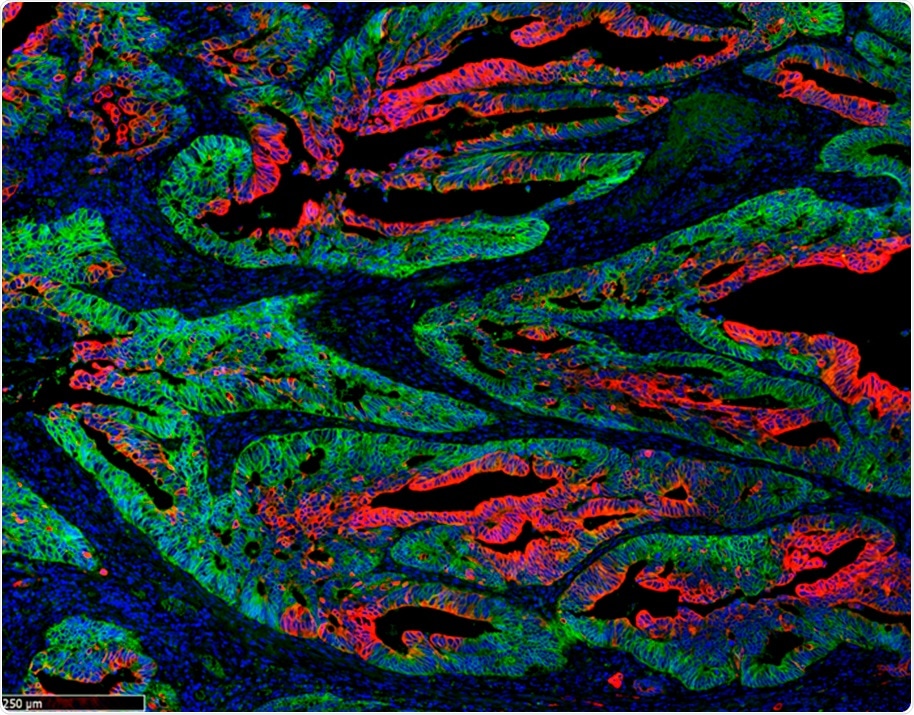Tumors are not a consistent cluster of cells. In fact, colon cancers carry differentiated-like cells, just like the functional cells of the intestinal wall and pluripotent cells, the supposed tumor stem cells. The latter drive tumor growth and lead to metastasis.

Tumor heterogeneity: cancer stem cells (green) and differentiated cells (in red). Image Credit: Institute for Research in Biomedicine (IRB Barcelona).
Eduard Batlle, ICREA researcher, head of the Colorectal Cancer Lab at IRB Barcelona, and group leader at the CIBER for Cancer (CIBERONC), headed a research team who revealed that the essence of pluripotency in colon cancer stem cells lies in their potential to produce proteins, a trait that can be additionally investigated as a therapeutic target.
Current treatments for colon cancer are not efficient because they do not eliminate all pluripotent cells. Various research groups, including ours, have observed that when cancer stem cells are removed via experimental approaches, other differentiated cells can return to a pluripotent state and regenerate the tumor. This is a phenomenon that we call plasticity.”
Eduard Batlle, Head of Colorectal Cancer Lab, Institute for Research in Biomedicine
In this analysis, the Colorectal Cancer Lab made an observation that the synthesis of protein in tumors takes place in particular regions that correspond with the niches of cancer stem cells.
Tumors also display a protein production gradient, and when this activity gets depleted, the tumor cells permanently lose their ability to return back to the state of cancer stem cells.
Thus, their biosynthetic capacity permits the cancer stem cells to contribute infinitely to the growth of tumor.
This discovery is an attempt to eradicate cancer stem cells based on their function rather than on their identity. A desirable next step would be to investigate whether it is possible to therapeutically interfere with the biosynthetic capacity of tumor stem cells in order to stop tumor growth and prevent metastasis.”
Eduard Batlle, Head of Colorectal Cancer Lab, Institute for Research in Biomedicine
Blocking biosynthetic capacity halts tumor growth
Clara Morral, the study’s first author, explained, “Using mouse models of colon cancer, we observed that by blocking protein synthesis in cancer cells or by eliminating those cells with this capacity we could stop tumor growth in an irreversible manner. The next step is to study the signals in the tumor environment that confer or maintain the biosynthetic capacity in certain tumor cells.”
Organoids and CRISPR, key developments for research success
The study was performed using organoids, which are small tumors isolated from patients and cultured in the lab; these organoids help study the heterogeneity and organization of tumor cells. The organoid culture system serves as a robust tool to imitate the traits of the cancers present in patients.
In addition, the study involved genetic modification of tumor cells through the CRISPR-Cas9 technique. This method enabled the scientists to particularly eradicate cells with biosynthetic capacity and thus analyze their role in tumor growth.
Source:
Journal reference:
Morral, C., et al. (2020) Zonation of Ribosomal DNA Transcription Defines a Stem Cell Hierarchy in Colorectal Cancer. Cell Stem Cell. doi.org/10.1016/j.stem.2020.04.012.